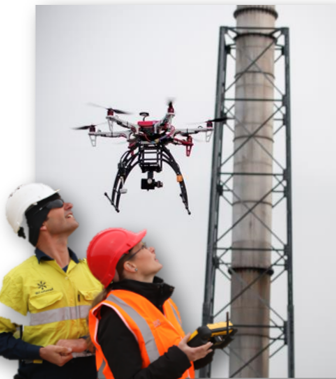Abstract
Star Trek movie fans no longer have to reach for the DVD player to have their Sci-Fi fix.
If you want to see the future, for better or for worse, look no further than the local news channel to see our ‘new world technology’ interacting with our daily life. Drones, or Remotely Piloted Aircraft Systems (RPAS), are developing faster in their performance and capabilities than even professional RPAS operators can keep up with.
The decision to ‘send in the drone’, can provide safer and more efficient solutions compared to that of traditional labor-intensive inspection, detection, survey, and data collection methods. Across a wide range of industries, organizations are recognizing significant financial and safety benefits of using RPAS, especially those companies who engage in High-Risk Operations (HROs).
Humans play a vital and centric role in RPAS operations; research has indicated that this role is more complex than conventional aviation and safety-critical activities such as commercial infrastructure inspections, testing, and data collection. As this industry explodes like a supernova and RPAS operators become more prevalent in commercial aerospace, we have to ask a deeper question, who is operating the system at the front line?
The success of the emerging RPAS industry will be determined by the willingness and ability of the RPAS crew and the end users to employ aviation safety philosophies, disciplines, and the proven aviation safety culture model. The RPAS industry needs more than a compliance philosophy to harness success; the key to this is a positive commitment to developing an RPAS Safety Culture.
Fortunately, lessons learned from 110 years of aviation have been recognized as crucial to operational success by other safety-critical industries, such as the medical, industrial, nuclear power, utilities, and other industry sectors. It is now time for the application of this type of safety culture to progress into the commercial RPAS world, a new generation of Airmanship, for a new generation of aviation.
Copyright 2017, Society of Petroleum Engineers
Lamb, T. (2017, April).
In SPE Health, Safety, Security, Environment, and Social Responsibility Conference-North America. Society of Petroleum Engineers.

